
The project concentrates on one of the CCSDD's focus regions of the Western Balkans. The CCSDD has worked on and in the region since 2000, the time when tragic conflicts were finishing, and new prospects were opening for the societies in the Western Balkan. The "Europeanisation and Legal Reforms in the Western Balkans" project is running since 2016 and is consolidating CCSDD research and teaching on the region.
Countries of the Western Balkans (WB) have gone the long way of democratic transition, constitutional change, and Europeanisation during the almost two decades long EU integration process with EU membership prospects offered in 2003. It has been recognized that is crucial to secure stable and efficient institutions in order to ensure long-lasting peace, consolidate democracy, enable the rule of law and economic progress. For this consolidation to materialize, utmost attention should be devoted to the development and strengthening of the institutions guaranteeing the democratic process and the rule of law in a complex Western Balkans context. As the transformation of the region is mainly driven by the influence of the European Union and its conditionality policy, the project concentrates on the specificities of the current phase of integration, impediments and challenges WB countries are facing thus aiming to provide academic analysis and policy proposals for their empowerment.
The project specifically aims to explore the consequences of the EU enlargement fatigue on reforms processes in the WB societies, but also on reverse phenomenon of "accession fatigue" which is growing in the region. In particular, the project is looking into strategies for further reforms in the context of unsecure EU membership prospects. It is also considering the relationship between the European Union and the Western Balkans from the perspective of the differentiated integration, considering both current prospective relations.
The project has so far contributed to numerous CCSDD activities and partnerships. These include regular teaching and sharing of latest research at the CCSDD's flagship programme – EU and Legal Reform Summer School. It has also led to cooperation with the International Development Law Organisation and in particular its Eastern Europe and Central Asia programme, as well as CCSDD becoming a partner in the Academic Research Network on EU Agencies and Institutional Innovation (TARN). Several CCSDD researchers are also contributing their expertise on the Balkans to the Jean Monnet module "EU Enlargement and Constitutional Transitions in the Western Balkans" run by the University of Udine.
Selected publications:
Čarna Pištan, Marko Milenković, La semplificazione amministrativa nei Balcani occidentali: i casi della Croazia e della Serbia. DPCE, v. 47, n. 2, july 2021. ISSN 2037-6677.
Marko Milenković Responses to the Covid-19 Crisis in Serbia - Democracy and the Rule of Law on Ventilators?, Percorsi costituzionali, no 2/2019, 2020.
Marko Milenković, Milica Pešteric, "Transition to Electricity from Renewables in Line with the EU Standards in Serbia – Integration with(out) Membership and Inconsistent Implementation" in: Matus Misik, Veronica Oravcinova (eds.) Energy Transition in Central and Eastern Europe, Palgrave Macmillan, 2020.
Marko Milenković, "State Aid Control in Serbia - EU Conditionality and the Challenge of Institutional Reform", Wоlters Kluwer CEDAM, Padova, 2019.
Marko Milenković, "The Transformation of State Aid Control in Serbia and EU Conditionality - Challenges of Integration Uncertainty and Reform Prospects", European State Aid Law Quarterly, vol 15, no 1, 2018, pp 66-79
Marko Milenković, "The institutional setting for state aid control in Serbia and the long road to 'operational independence'", Serbian Political Thought, vol. 18, no. 2, pp 69 – 87, 2018.



